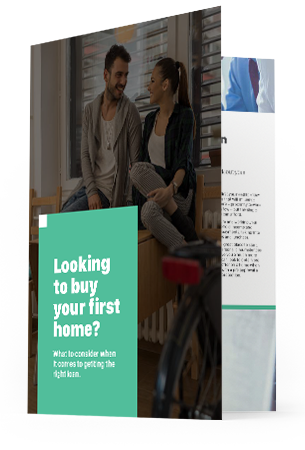Becoming a first home buyer
Buying your first home is an exciting, but big step to take and one that comes with many questions and decisions. The first big question is how much you can borrow and what your likely repayments will be.
That’s where we can help, we’ll do the legwork for you. We can compare home loans across a variety of products available from Australia’s leading lending institutions.
And because you’re a first home buyer, you may be eligible for a first home buyer grant. This grant may be available to Australian citizens or permanent residents who wish to buy or build their first home, which will be their principal place of residence within 12 months of settlement. As grant conditions vary from state to state, contact us to find out more about eligibility requirements in your state and how much grant money you could receive.
We will also liaise with the lender. It’s our job to do the hard work and you can focus on finding the right home for you. We’ll be there every step of the way to guide you through the entire home loan process – from application to approval.
A general First Home Buyer FAQ guide
How much money can I borrow?
We’re all unique when it comes to our finances and borrowing needs. Contact us today, we can help with calculations based on your circumstances
How do I choose a loan that’s right for me?
Our guides to loan types and features will help you learn about the main options available. There are hundreds of different home loans available, so talk to us today.
How much do I need for a deposit?
Usually between 5% - 10% of the value of a property. Speak with us to discuss your options for a deposit.
How much will regular repayments be?
Go to our Repayment Calculator for an estimate. Because there are so many different loan products, some with lower introductory rates, talk to us today about the deals currently available, and we’ll work with you to find a loan setup that’s right for you.
How often do I make home loan repayments — weekly, fortnightly, or monthly?
Most lenders offer flexible repayment options to suit your pay cycle. If you aim to make weekly or fortnightly repayments, instead of monthly, you will make more payments in a year, which can potentially shave dollars and time off your loan.
What is the First Home Owner Grant and can I get one?
This is a grant available to Australian citizens or permanent residents who wish to buy or build their first home, which will be their principal place of residence within 12 months of settlement. Contact us directly to find out more about eligibility requirements in your state and how much grant money you could receive.
What fees/costs should I budget for?
There are a number of fees and costs involved when buying a property. To help avoid any surprises, the list below sets out many of the usual costs:
- Stamp duty — This is the big one. All other costs are relatively small by comparison. Stamp duty rates vary between state and territory governments and also depend on the value of the property you buy. You may also have to pay stamp duty on the mortgage itself. To estimate your possible stamp duty charge, visit our Stamp Duty Calculator.
- Legal/conveyancing fees — Generally around $1,000 – $1500, these fees cover all the legal requirements around your property purchase, including title searches.
- Building inspection — This should be carried out by a qualified expert, such as a structural engineer before you purchase the property. Your Contract of Sale should be subject to the building inspection, so if there are any structural problems you have the option to withdraw from the purchase without any significant financial penalties. A building inspection and report can cost up to $1,000, depending on the size of the property. Your conveyancer will usually arrange this inspection, and you will usually pay for it as part of their total invoice at settlement (in addition to the conveyancing fees).
- Pest inspection — Also to be carried out before purchase to ensure the property is free of problems, such as white ants. Your Contract of Sale should be subject to the pest inspection, so if any unwanted crawlies are found you may have the option to withdraw from the purchase without any significant financial penalties. Allow up to $500 depending on the size of the property. Your real estate agent or conveyancer may arrange this inspection, and you will usually pay for it as part of their total invoice at settlement (in addition to the conveyancing fees).
- Lender costs — Most lenders charge establishment fees to help cover the costs of their own valuation as well as administration fees. We will let you know what your lender charges but allow about $600 to $800.
- Moving costs — Don’t forget to factor in the cost of a removalist if you plan on using one.
- Mortgage Insurance costs — If you borrow more than 80% of the purchase price of the property, you’ll also need to pay Lender Mortgage Insurance. You may also consider whether to take out Mortgage Protection Insurance.
- Ongoing costs — If you buy a strata title, regular strata fees are payable. You will need to include council and water rates along with regular loan repayments. It is important to also consider building insurance and contents insurance. Your lender will probably require a minimum sum insured for the building to cover the loan.
Need a home loan?
Whatever your circumstances, we will look for a loan that’s right for you, not the lender. Send through a quick enquiry and we will be in touch.

